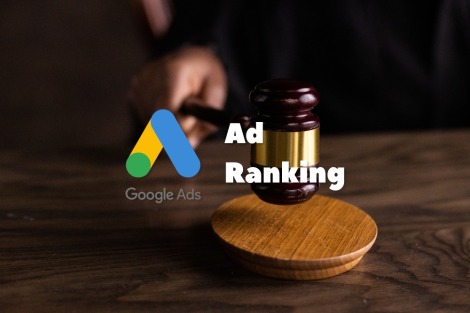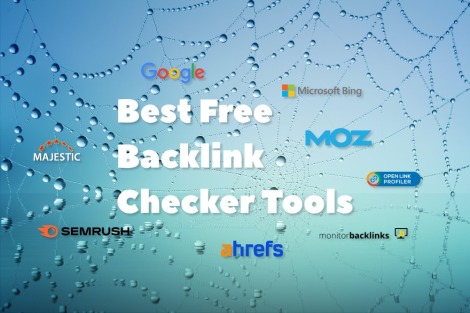
Putting your Company Name as the Headline
This is a basic marketing error as such, let alone in a Pay-per-Click campaign, and time and time again you see it. It's also one where we have had clients actually insisting we do it!
The trick to any advertising, online or offline, is to grab attention in the headline, and, sorry, but your brand name on its own just doesn't cut it. Your customers want to see what's in it for them - not what's in it for you. Unless it's a strong brand and a massive and eye-catching offer - such as "95% of all Nike Trainers" - don't use your brand name.
For example, if you are an ACME accountant specializing in VAT, instead of: "ACME Accounting for all your VAT and Accounting Needs." why not use an attention-grabbing headline like: "Save £10k on your Next VAT return"?
Trust me, your click-through rate (CTR) will be much better, and your clicks will be pre-qualified leads and not just tyre kickers!
Limiting the Campaign to Just One Ad Execution
Again this is another basic marketing error. In the good old days when lumpy mail was the only alternative, we used to send out different executions of the same direct marketing (DM) piece and measure the Return on Investment (ROI) for each one.
Use different ways of offering the same thing using headline and copy variations, try different promotional tools (£s off or % off), and advertise different products in the range.
Here's an example of 2 executions selling the same PowerPoint and Presentations skills courses:
- Want Great Presentations?
Develop a Presentation Style that's Effective & Works Time and Again. - MS PowerPoint Course
Learn How to Present Effectively in 2 Days in Hants. Book Now £397.
They had quite different click-through rates. Test, measure, review, refine - make money!
Sending Visitors to your Home Page
Those people who have taken the trouble to click on your pay-per-click ad have a specific interest - after all, you have carefully crafted a laser headline and killer copy. Pointing them to your home page is a bit like keying in my postcode and your sat-nav sending you to Reading! Technically correct, but absolutely no use whatsoever.
Have a landing page set up that specifically deals with the content of the ad, with an attention-grabbing headline the same as in the pay-per-click ad - repetition is a key principle of marketing.
Offer a "buy now" call to action or a "request more information" option - why not grab their details with a form first so you can re-market back to them via your email marketing list (you have got one of those, haven't you?).
Why not have different landing pages for each execution so you can test and track that as well? Find the killer combination that gets you the most return for your outlay.
Never send your prospect to your home page - unless you have a specific reason for it.
Not Measuring Conversions
Who was it who said,
I know half the money I spend on advertising is wasted, but I can never find out which half.Actually, according to Wikipedia, it was John (Nelson) Wanamaker (July 11, 1838 - December 12, 1922), a much respected and admired United States merchant, religious leader, civic and political figure, considered the father of modern advertising, who invented the Department Store.
In those days there was not the technology to measure effectiveness, but now there is no excuse.
Register with Google Analytics. It is a treasure trove of tools, and a vital piece of kit to measure the effectiveness, down to the last penny, of your campaign.
Download the HTML code - embed it into your website, including the landing pages, and you will be deluged with a mass of vital stats with which to fine-tune your campaign. You will be surprised by what works and what doesn't.
Using the Wrong Keywords
With the tools available in AdWords and Analytics, you can hone in on the keywords that will work best for your ad. Your prospective customers are really specific about what they are looking for, and you have to find the best blend of keywords and key phrases.
You will find that key phrases generate a much better CTR but will not deliver the volume of clicks that a single keyword will produce. You need both, but also be aware that some keywords are very expensive in terms of cost per click (CPC) - and if they are not producing quality leads then avoid them - try and dominate a phrase.
You are going to need between 25-50 keywords as a rule of thumb. Use a keyword tool - the Google one is a pretty good place to start.
Again, measure, review, refine - make money!
Not Using Negative Keywords
Negative keywords should be a key component of a successful keyword strategy. Integrating negative keywords into a well-targeted keyword list will lower your costs and will ensure visits to your landing pages are properly targeted.
Negative keywords (just put a minus sign in front of the keyword) will stop the wrong sort of customer being presented with your ad when they search.
For example, you sell old guitars and especially electric semi-acoustic.
Keywords could be:
- used guitars,
- used semi-acoustic guitars.
Negative keywords would be:
- -vintage (because you don't deal in rare vintage guitars),
- -Guild (because you only deal with Gibsons and Gretsch).
Not Switching Off Google AdSense
Google AdSense, or Display Network, is a wonderful thing, but it's not necessarily for everyone.
Display Network is those contextual ads you see on, for example, forums and review sites. Ads presented here are largely out of your control and can eat up your budget really quickly.
Unless you specifically want your ads presented there, switch off 'Display Network' in the Campaign Settings - just un-tick the box.
I hope you found these 7 tips useful and that you use Pay-per-Click as a successful part of your overall marketing mix. Have fun!



